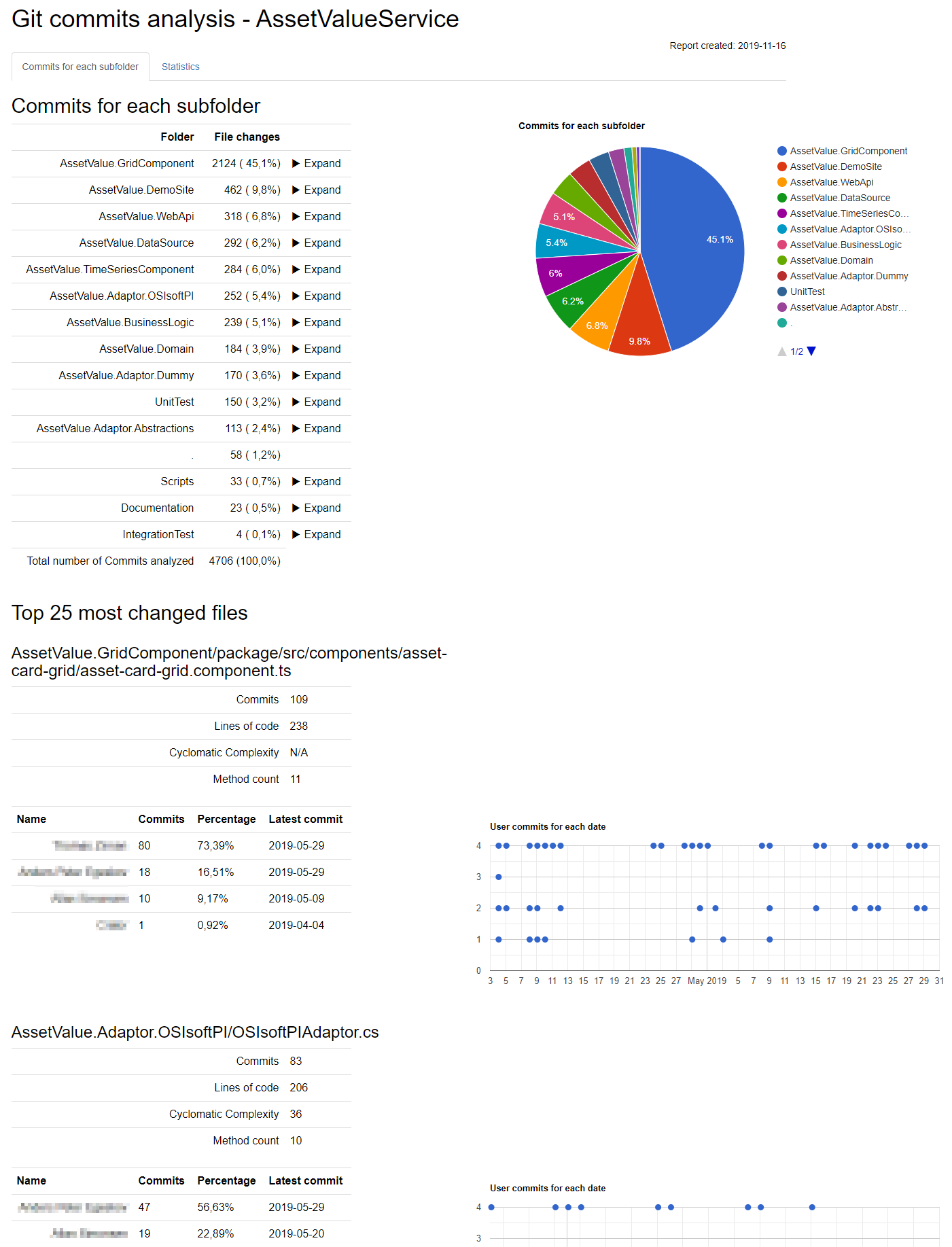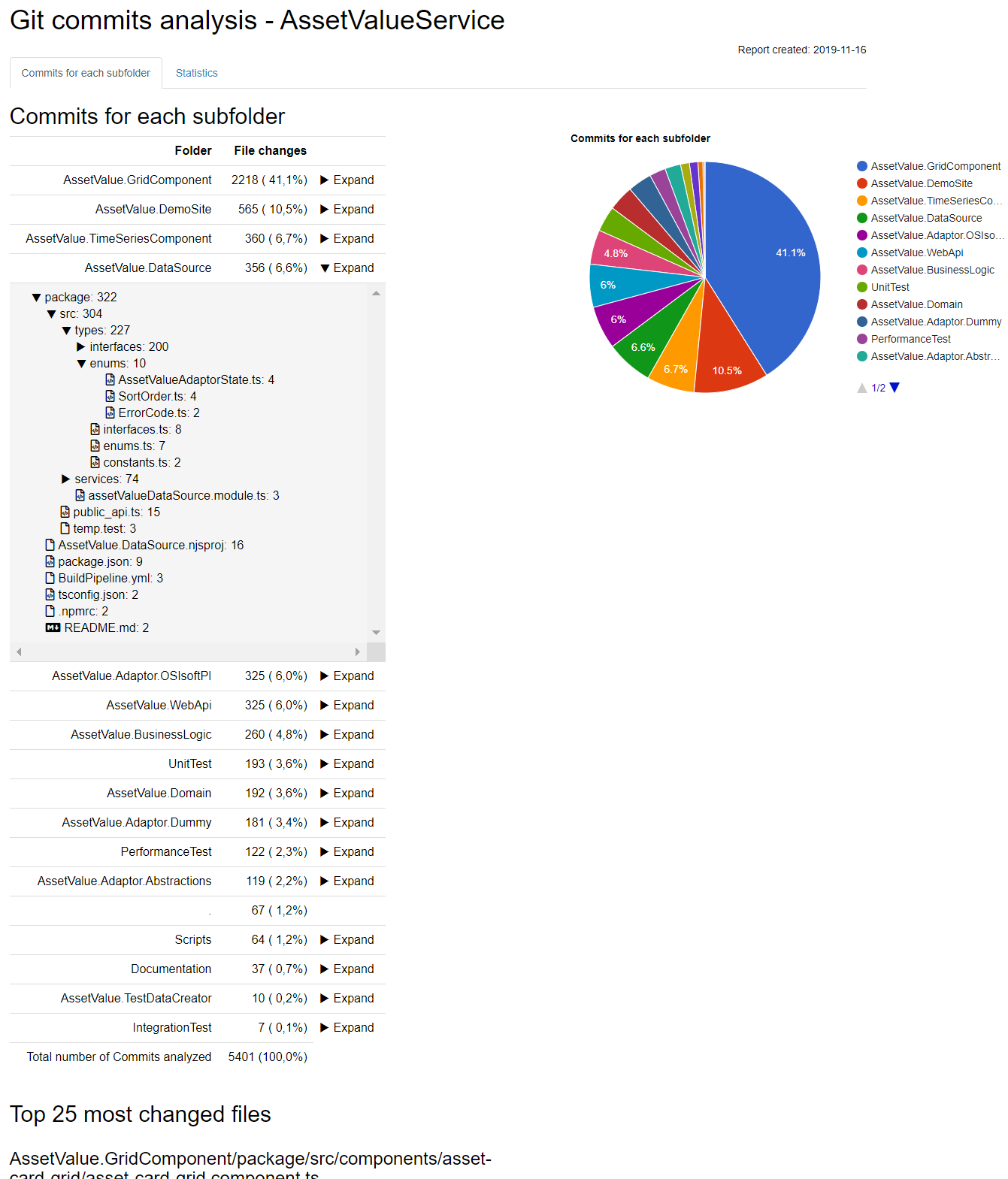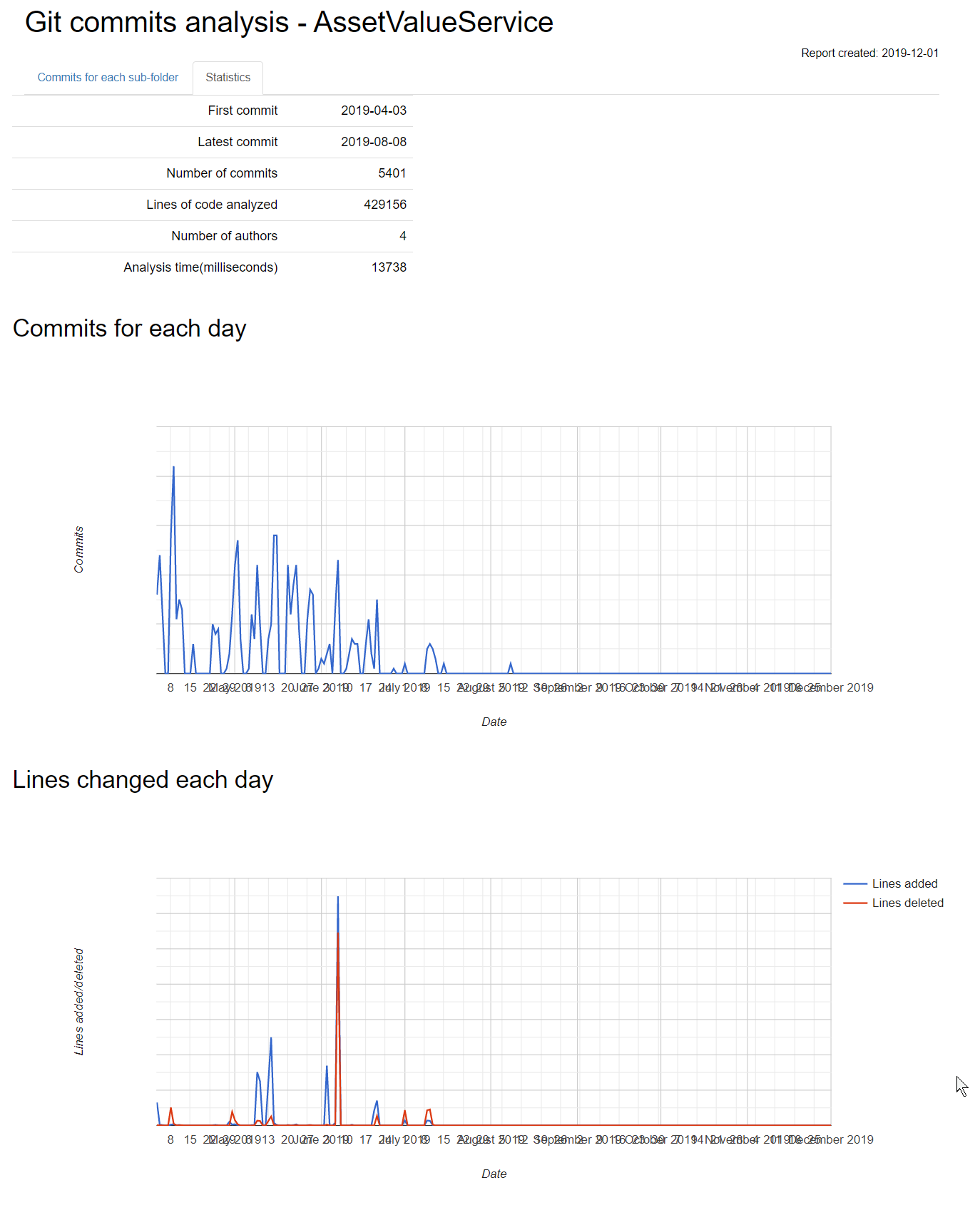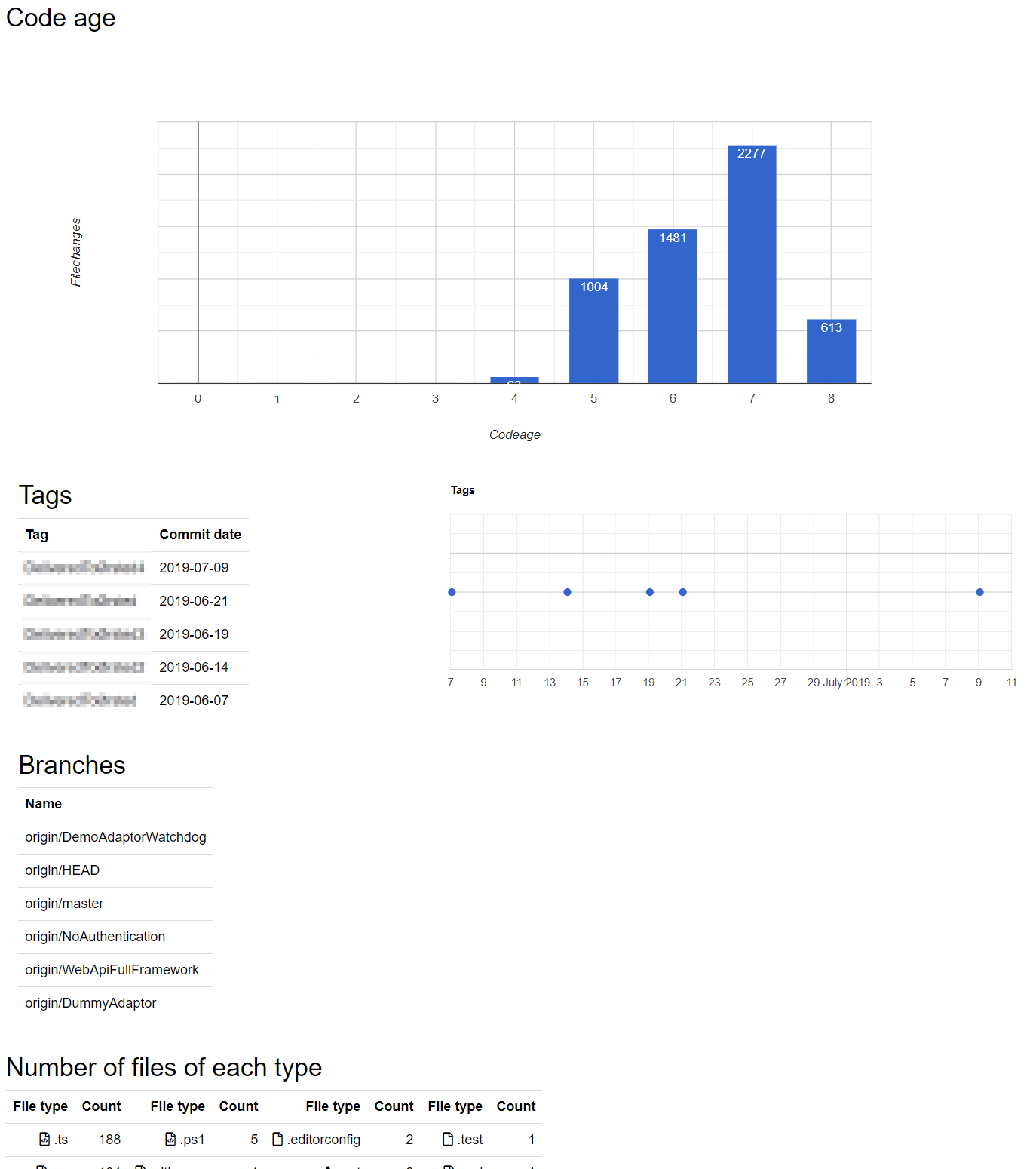This tool can be used to generate a report showing the temporal distribution of you commits and the size and complexity of the codefiles in a Git repository.
The inspiration for this tool is this YouTube video: Adam Tornhill - Seven Secrets of Maintainable Codebases. In the video he shows how to do a temporal analysis of your codebase to determine hotspots and candidates for refactoring.
By combining the number of lines of the code files with the number of commits and the cyclomatic complexity, you can identify codefiles that are candidates for refactoring. The ideas Adam Tornhill is presenting is that:
- If a codefile is long (has many lines of code) then there is a good chance that it should be refactored into smaller pieces.
- If a codefile has a large cyclomatic complexity value, then there is a good chance that it should be refactored into multiple pieces with more specific responsibilities.
- If a codefile is changed often, then it is probably an important part of the business logic of the codebase.
- If multiple codefiles are changed on the same dates, then they are probably tightly coupled and maybe share functionality that could be extracted into a super class shared by the candidate files.
By combining the factors you can identify the candidates where refactoring would improve the quality of your codebase the most.
The tool is a command line tool that generates a report in one of the formats:
- HTML
- Excel
- Markdown
- Text
- Json (A dump of the collected data. Could be used as input for other tools)
The HTML report is the most detailed with various charts visualizing the statistics.
GitCommitsAnalysis 1.0.0
Copyright (C) 2019 GitCommitsAnalysis
-r, --rootfolder Required. The root folder of the application
source code
-o, --outputfolder Required. The output folder where the generated
reports will be placed
-a, --reportfilename The filename the report(s) will be given
-f, --outputformat Required. The output format(s) to generate.
Multiple formats should be space-separated. Eg.
'-f Text Json'. Valid formats: HTML, Markdown,
Json, Text, Excel
-n, --numberoffilestolist (Default: 50) Specifies the number of flies to
include in the list of most changes files.
(Ignored when output is Json)
-t, --title (Default: GitCommitsAnalysis) The title to appear
in the top of the reports
-i, --ignoredfiletypes The file types to ignore when analyzing the Git
repository.. Eg. '-i csproj npmrc gitignore'
The calculation of the Cyclomatic Complexity i found over at Jakob Reimers ArchiMetrics repository.
Any ideas, bug reports or help building this tool, is greatly appreciated. Have a look in the Contributing file about how to help.
CommandLineParser NuGet package for parsing the commandline parameters and generating the help page.
LibGit2Sharp for reading the Git repository.
Newtonsoft.Json for generating the Json dump of the analysis data.
EPPlus for generating the Excel report.
TypeScriptAST for counting methods and functions in Typescript files.
Google charts for displaying the pie chart and the scatter charts in the HTML report.
Bootstrap for styling the HTML report.
jQuery used by the HTML report.
FontAwesome used to add icons for the file changes.






